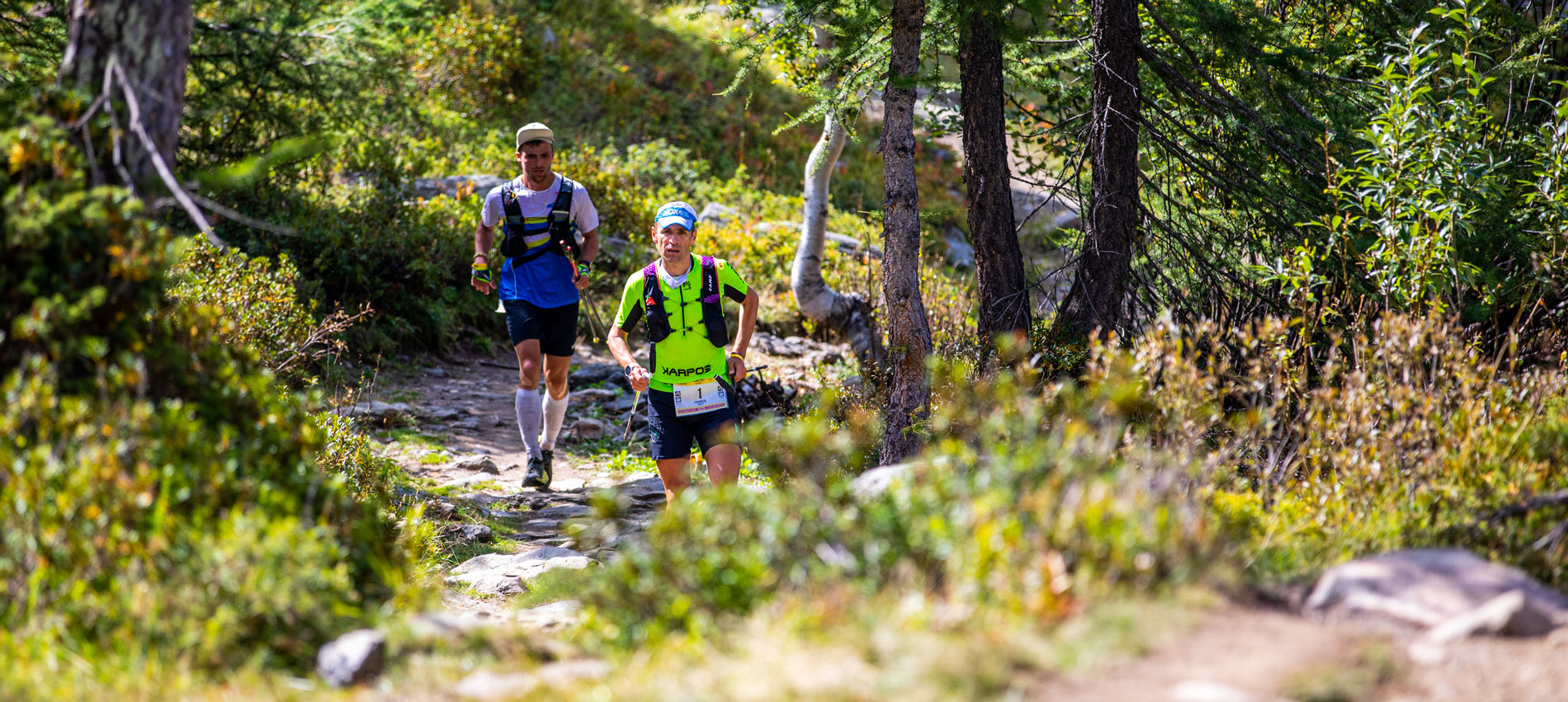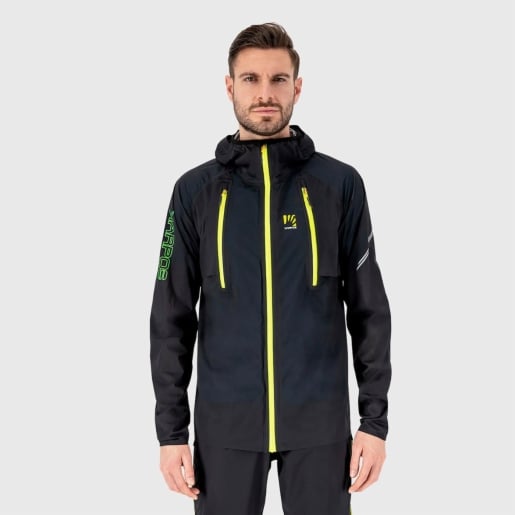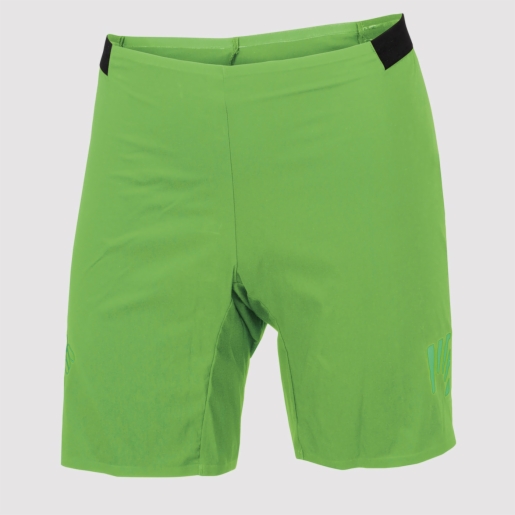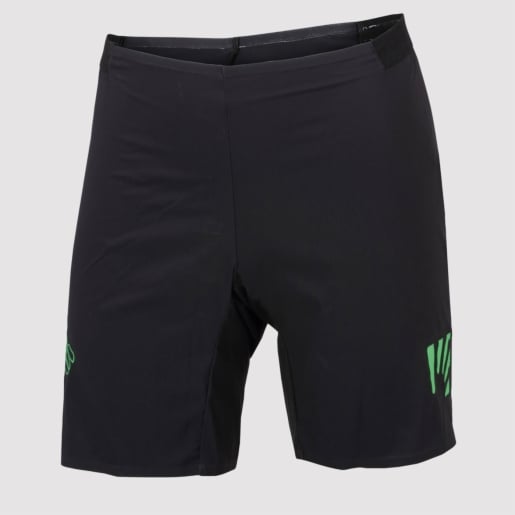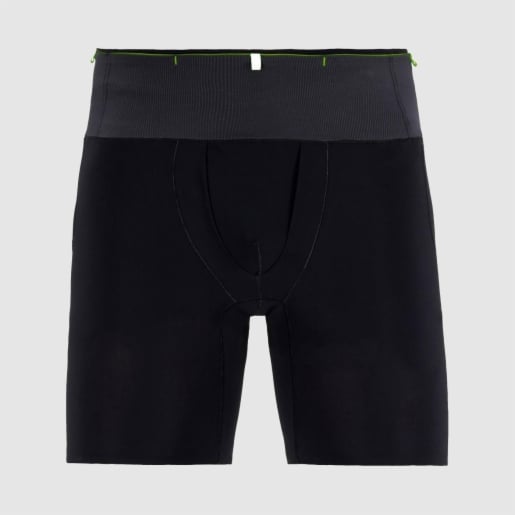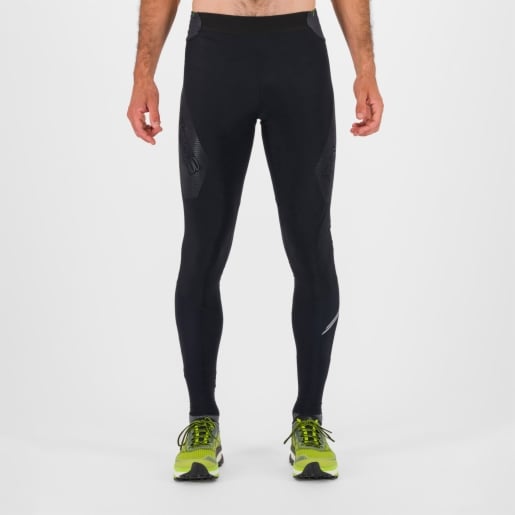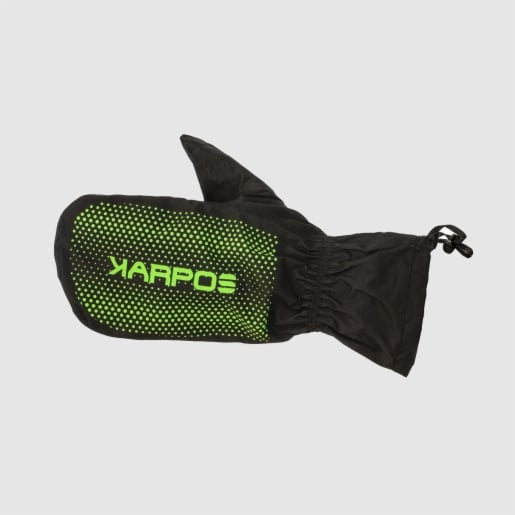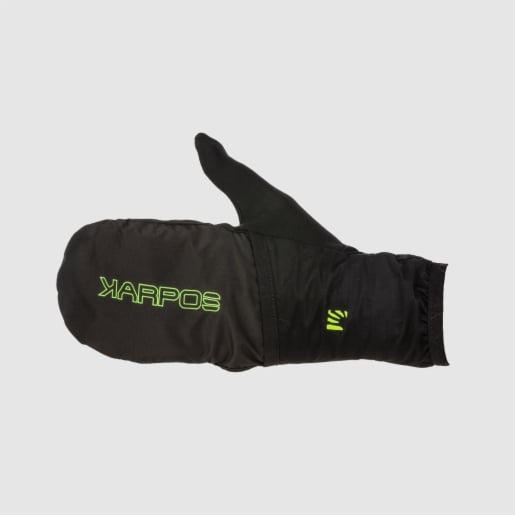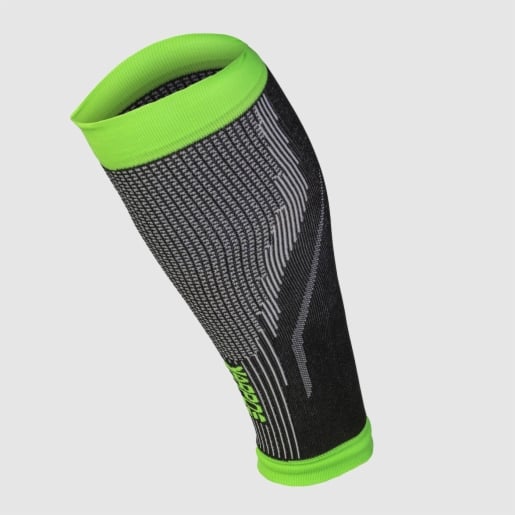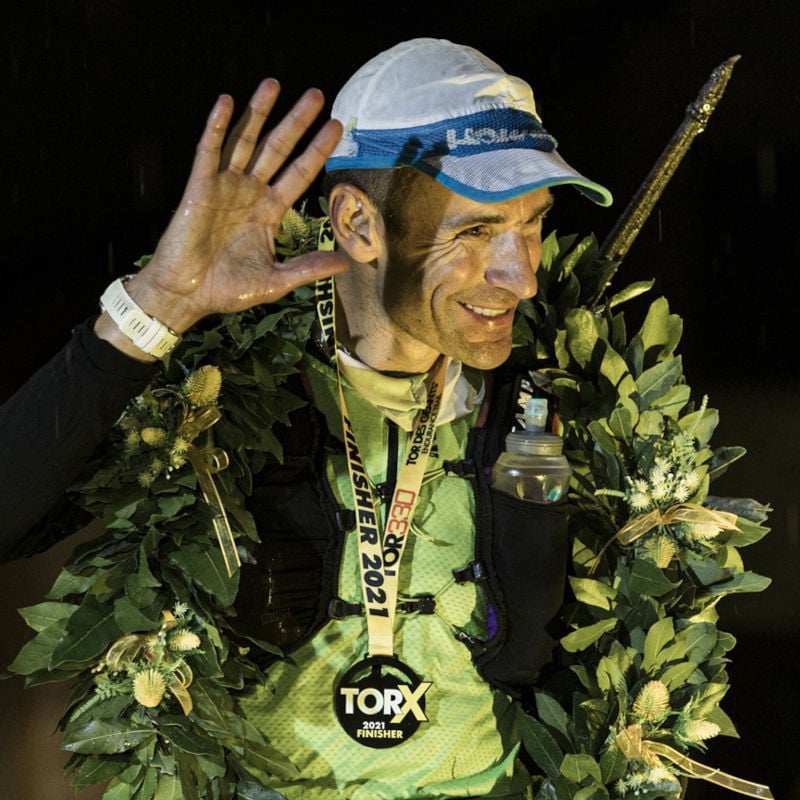
Tor des Gèants® you don’t understand it until you’ve tried it
Franco Collé tells his history
______
CHAPTER 1
The Tor des Géants is always a difficult choice. Every year I tell myself that it’s the last, and then, as time passes, I start thinking about the race again. It brings back emotions, moments, memories … and in the end I give in!
You don’t prepare for a Tor hastily. It requires consistent work, which I accrue competition after competition, race after race. Then, I start feeling Tor in the air. I set aside everything else and just focus on those 330 kilometers. From mid-August until the week before the race, I train from morning to evening, alone, on the trails of the giants. I meet friends and fans, I experience the villages, I discover the rifugios. I enjoy the journey, the landscapes, and the people. These are the 15 best days of the year ... and then I fall into a state of concentration that isolates me from everything and everyone. The week before the race is a sequence of now habitual rituals. I prepare my gear, take short walks, eliminate stress, watch my diet carefully, and plan my race with those who will be supporting me.
When I arrive in Courmayeur to pick up my race packet, my head seems ready to explode. I walk through the crowd, listening to the confused shouting that fills and dominates every thought: “I said I was done. What am I doing here?” Jersey, shorts, shoes ... have I forgotten something? I want to enjoy the last dinner, and I need to rest, but the desire to attach my race number is overwhelming. The adventure that awaits me is too big. All my supplies are already on the sofa. I double-check them one last time: backpack, headlamps, spare batteries, gear to change at the life bases, shoes numbered in the pre-established order, the clothing I’ll wear for three days. Meanwhile, my phone vibrates relentlessly. It’s flooded with messages.
At dawn I’m already up. The big day is here. I call my mom. As always, it’s a difficult call. “If I don’t feel good, I’ll stop” I tell her. I already know that I’ll find her somewhere along the route, looking at me with her eyes bright with emotion. Her voice trembles as we conclude the call, and the “I love you” whispered into the phone is a hiss so light that it almost gets lost in the ether. “This is it! Let’s do our best!” These simple words with my younger sister are enough. We both know what awaits us. She’s on the team, at the life bases. She’s always with me, at every step.
In the meantime, Giudy, my girlfriend, prepares a last hearty breakfast for me before taking me to the start. A silent journey during which I try to steal a few more minutes of sleep, but my head seems to want to implode. It’s impossible to stay calm. In three days, a year of work, training, effort, and time taken away from loved ones all comes together.
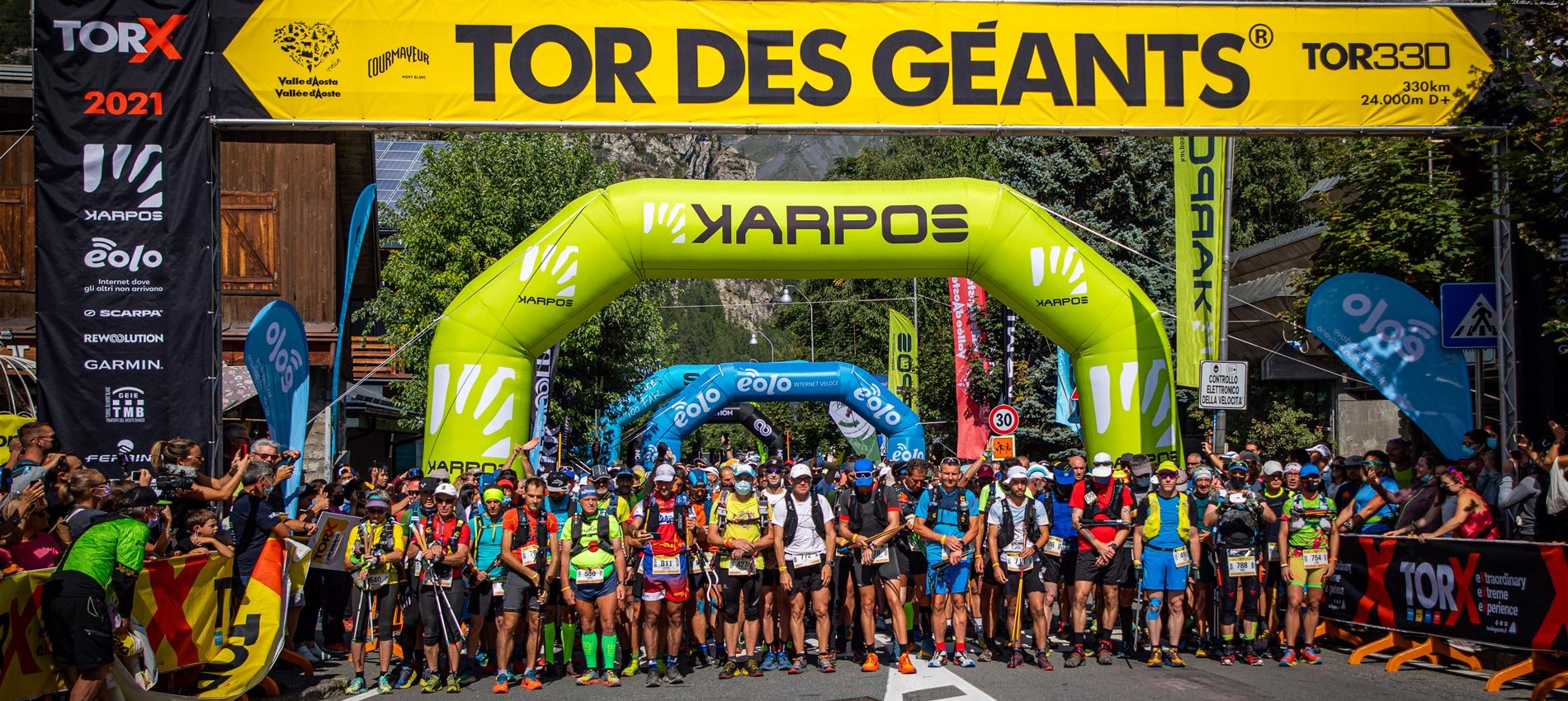
When I hear Silvano Gadin’s voice drown out every other sound, I get goosebumps. It’s really happening, once again! 10, 9, 8, 7, 6, 5 … my breathing speeds up … 4, 3, 2, 1. Everything ends and everything begins. The mind empties; every thought becomes superfluous. I’m overwhelmed by the crowd along the streets of Courmayeur, providing shouts of encouragement. It’s the perfect background for this moment. The effort is forgotten. Now the race is on. It’s pleasure. Enjoyment!
The first day is like this, constantly meeting fans. They’re scattered along the route, at the main passes, in the rifugi, and alongside the trails. It’s a party atmosphere that’s experienced joyfully, as we share the enthusiasm with those who will be our adversaries over the days to come. We talk, joke, compare, and study each other. The first night hasn’t come yet, but the journey has already begun.
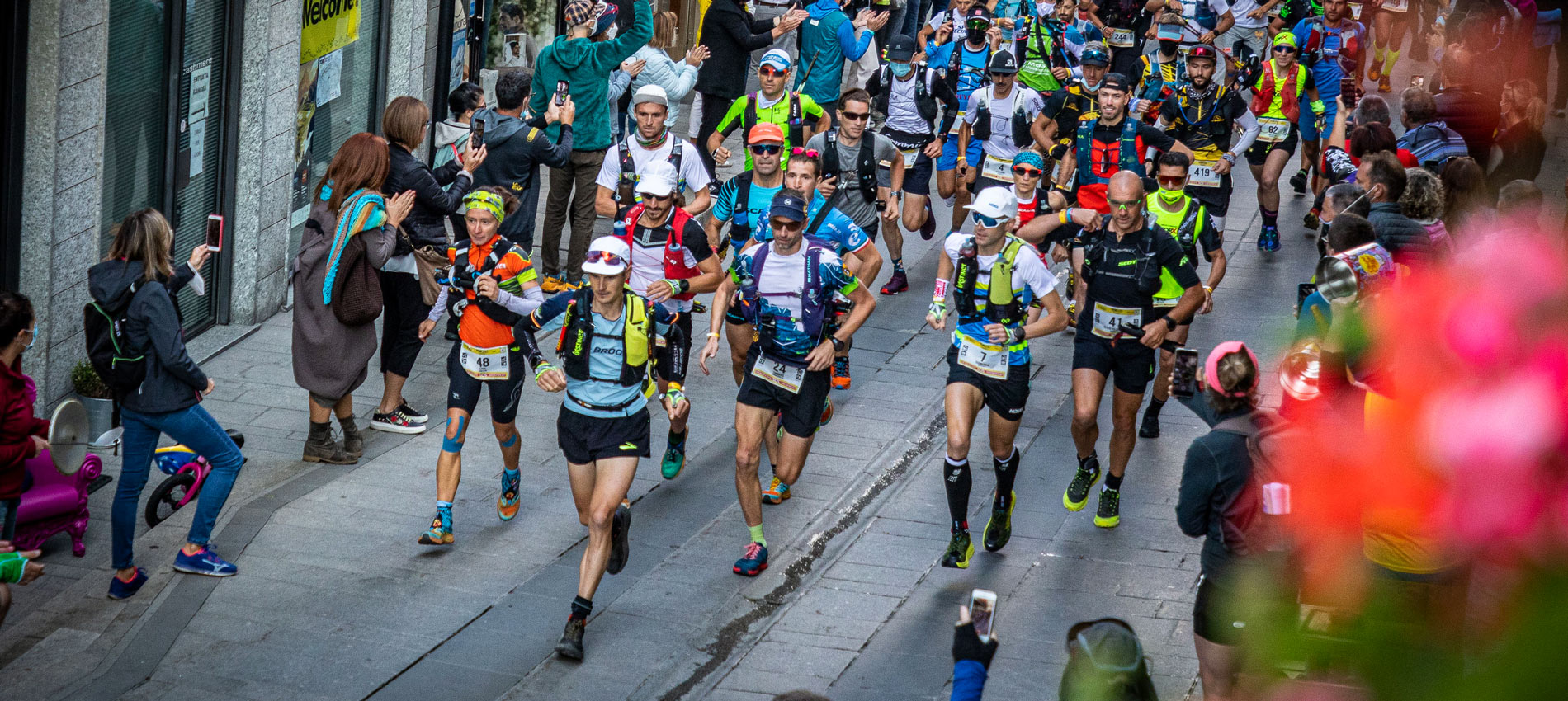
CHAPTER 2
In the dark, silence descends on the trail. The fans go to bed but we don’t. Our legs have covered almost 100 kilometers, and fatigue takes over. Here you begin to understand what the Tor means; you begin to understand the motivation needed to keep going forward when there’s no one there on the trail to encourage you, to give you energy. You have to search within yourself, to remember that you want to have fun … giving it everything. The challenging Loson and Entrelor passes are still to come, plus there’s the Swiss runner Jonas Russi, who is unrelenting.
I pick up the pace and he’s always there. We run alone, speaking little and studying each other. Our headlamps pierce the night. As I move forward, I think back to 2020, when we finished SwissPeaks together. With a bit of self-importance, I think I don’t want the same result here: this is my valley; these are my trails. My fans want a battle. I want a battle too. The most passionate fans haven’t gone to sleep. They’re still out along the trail. They wait for us in the rifugi and the villages. They urge us on and encourage us. Some of them study our gait to figure out who’s feeling better. We’re both fine. Actually, Jonas is feeling better than I am! Uphill he has the advantage; uphill he pushes harder while I struggle. On the downhill, though, I feel stronger and manage to close the gap. It’s an equal fight.
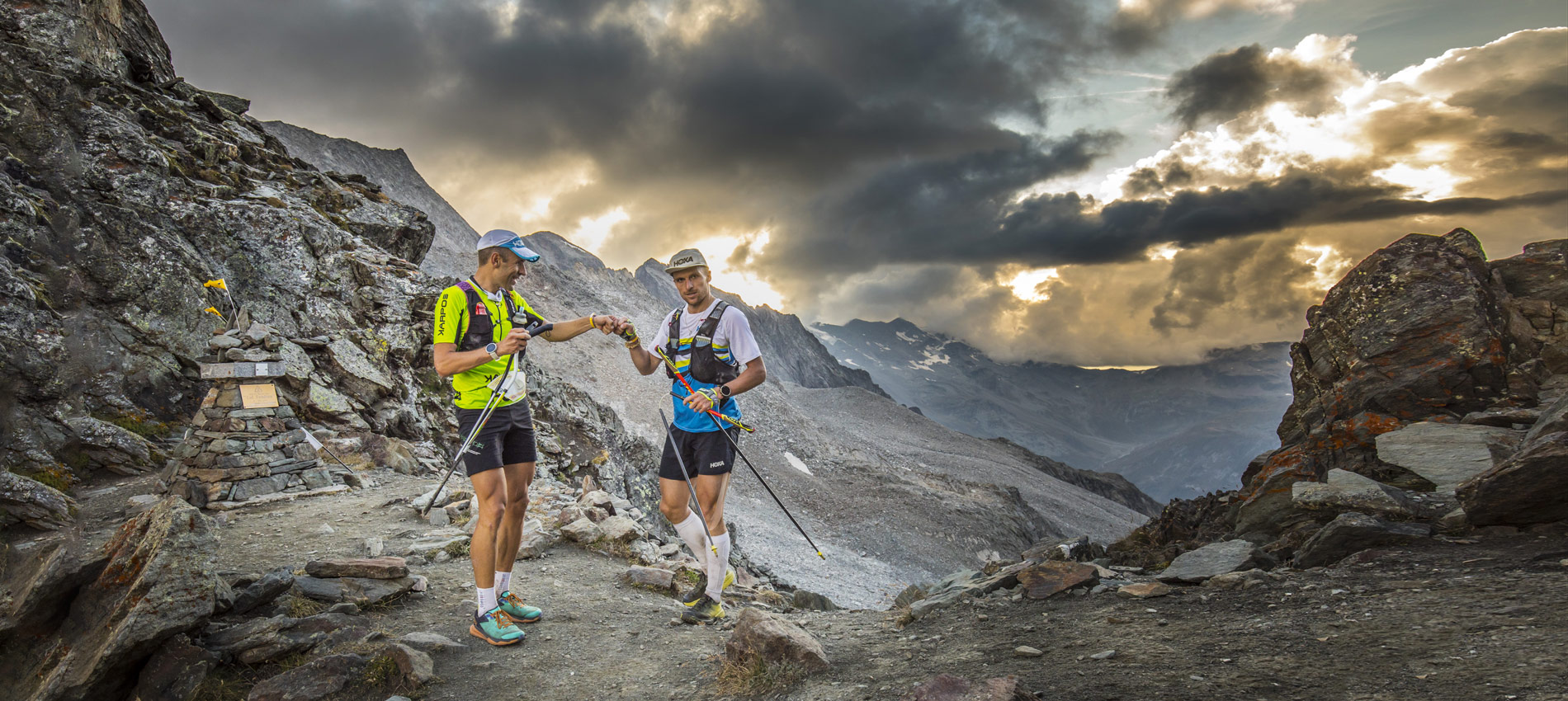
At Col Entrelor, I accept the hot tea offered by the forestry service, and then I start downhill, but something seizes up. Suddenly, I find myself on the ground, confused. I throw up the tea and watch Jonas go on ahead until he disappears from view. I try to get back on my feet and, without losing heart, I continue my race. I reach the Valsavarenche refreshment point as Jonas is about to leave. He looks fresh and rested; I’m staggering and pale. I stare blankly. Everyone immediately understands that something is wrong. I try to eat but throw up again. Though I have no more strength, I try to start out again. The fans are staring at me, apprehensive and helpless. Giudy tries to encourage me. She tells me to hang in there, to hold on until Cogne. I try, while the open spaces of the mountains give way to thick woods. Jonas is now little more than a bright dot, high on the mountain, rapidly climbing toward the next pass.
I haven’t eaten in 30 kilometers, but I hold on, pursuing a succession of many small goals. I have to hold on until that pass up there, at 3,300 meters. It’s a struggle to drag my tired legs upward. Unbearable torture.
But after a hard climb there’s always the pleasure of the descent, my favorite terrain. This is where I have to try to force the pace to close the distance that separates me from Jonas. I’m exhausted, but my competitive instinct pushes me and drives me to chase that bright dot. Going down into the valley, I seem to see it getting closer and closer. Somehow, my body is filled with a new form of energy. I know it’s just the placebo effect, but I still try to force the pace. Step by step, the light becomes brighter and brighter. Now I see a shape … at Rifugio Sella, we’re side by side. The challenge is open again.
Together we descend toward Cogne. “I was sure you’d recover and catch up to me” he confides between one breath and the next. I look at him and smile with pride, but inside I am drained. That chase cost me too much; now I’m at the end of my rope.
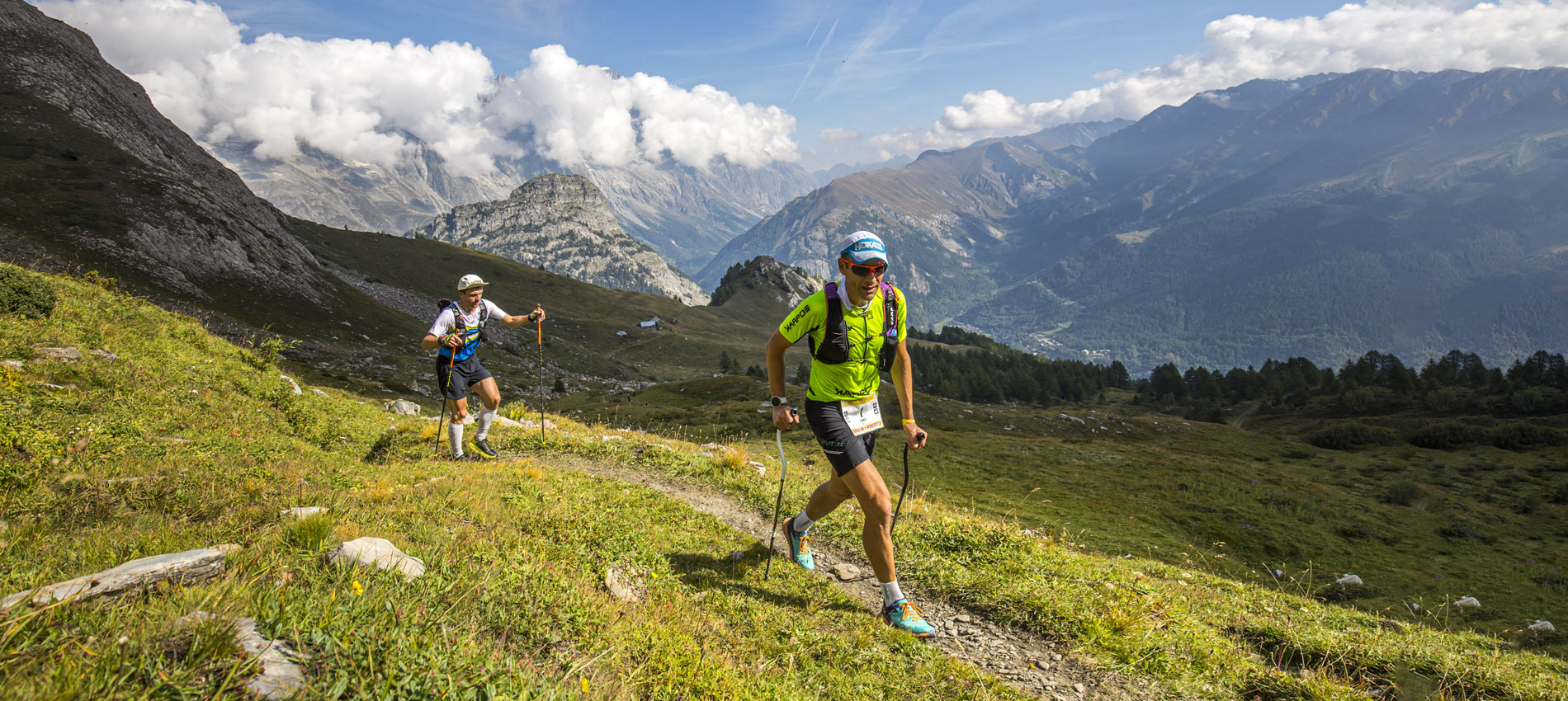
At the Cogne life base I find Giudy, who looks at me with eyes full of concern. Without wasting any time, I throw myself on a deck chair. I literally let myself go. My body is telling me, “Enough!” I close my eyes and collapse, exhausted. When I recover my senses, they try to give me something to eat, but I just seeing the food makes me gag. I haven’t eaten or drunk in 50 kilometers. Jonas has moved ahead again, but there’s no thought of challenging him now. We’re playing two different games. I have to think about my body to recover my energy. I start out again at a very slow pace. “It will have to pass sooner or later,” I repeat sarcastically as I drag my feet up Col Fenêtre. Suddenly I find myself lying on the ground, crying like a baby. I feel excruciating despair, but once more I start out again. Now I climb slowly, almost on all fours. It’s not a race anymore; now it’s me against myself.
I cross over the pass and reach Rifugio Miserin as the sun is rising. I haven’t eaten or drunk in almost 100 kilometers now. My body can’t take it anymore, but my head still seems to be having fun. I want the challenge, and I keep looking for it in a tangle of emotions that from the outside must make me look like a madman.
Now the goal is Donnas. I try to waste little time at the refreshment points and ration the energy from a popsicle, the only thing I’ve been able to eat. I pass Rifugio Coda, greeted by shouts of encouragement from the people who’ve come up from Biella to cheer me on, and I enter my valley. I feel a jolt that gives me goosebumps. I’m very motivated; I want to reach the finish. I have a new smile on my face. The crisis has passed. Jonas has a 51-minute lead, but I’m getting back on track.
CHAPTER 3
After leaving Rifugio Coda, I’m a new person. I run up and down the continuous climbs and descents along the border between Valle d’Aosta and Piedmont. I have a new rhythm, and, finally, I’m having fun. Now Jonas has a gap of about 40 minutes, but when I reach Rifugio Barma it’s at 35. At this pace I should soon be able to catch him.
The fans along the route look at me in disbelief as I throw myself into the climbs and descents. I almost feel like I could increase the pace further, but I prefer not to overdo it. I already have 200 kilometers in my legs — better not go overboard. In recent years, the Tor has taught me that you need to use your head well and not get caught up in the euphoria.
I reach Niel and find an exaggerated party atmosphere. They tell me that Jonas has just left; now the gap has been closed. But I still take my time. I can finally eat something solid. Giudy also seems reborn, and the worry has now disappeared from her eyes, giving way to a feeling of joy and enthusiasm that unites us. As I enter Gressoney I meet my friend Chicco Pellegrino, who brings good news: Jonas is only 5 minutes away!
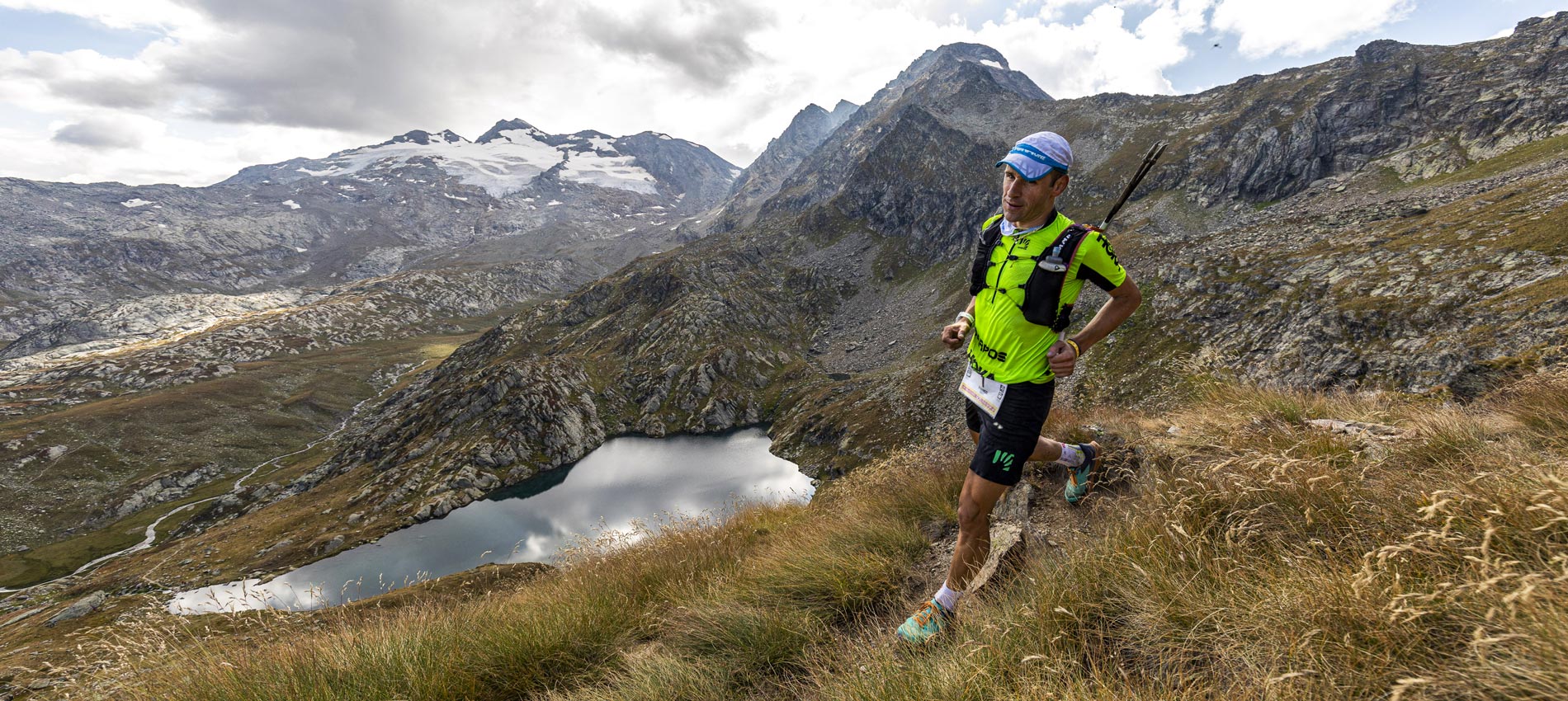
I accelerate my pace and reach the life base, where I meet my rival’s gaze. “I knew you’d come,” he says with a tired smile. We start out again and study each other, friends and enemies on the trail. For 100 kilometers, no one lets up. He forces the pace uphill; I close the gap on the downhill. No stops to sleep, no breaks, no signs of fatigue. Finally, the sporting battle that I’ve dreamed of! As the kilometers pass, I realize that I have a special opponent at my side: fair, humble, strong, and athletic. It’s a stimulating challenge as we study each other without saying a word.
“We’re 2 minutes under the race record,” Giudy whispers in my ear, triggering something: I want to go for it! In past years I had hoped several times to take home the record, but I’d never succeeded. Could this, despite all the problems, be the right opportunity? Near Col Champillon, I want to try to pull away from Jonas. I want to push hard and give everything until the finish. So I ask him the question I’ve been saving for a while now: “Are we going to finish together or shall we fight for it?” His response is exactly what I expected: battle!
We leave Rifugio Champillon at such a frenzied pace that we can hardly catch our breath. He in the lead, me right behind. I wonder how long we can keep up this tempo. Then, the unexpected. “Go! You’re stronger. Break the record.” Jonas surrenders. “I can’t go any faster than this.” Now I know what I have to do. Attack. Create such a gap that he can’t come back.
I start running like crazy, never looking back until I reach the end of the Menouve Valley. I have a 20-minute lead here, but I’m still not satisfied. Head down, the only sound I hear is that of my breathing, until I reach the Saint Rhemy life base. Now my thoughts are projected toward a single goal: the record. The last 30 kilometers are incredible. I move at a speed I could never have imagined after 300 kilometers. I feel fresh, and it almost seems like I don’t have all that distance in my legs. I reach Malatrà under a downpour. I stop just long enough for a photo, then on I go. I hear the rain ticking on my lightweight shell. My legs are cool, the ground slippery. Not wanting to jinx myself, I don’t look at my watch, but I keep pushing as I’ve never done before until I reach the streets of Courmayeur. Only here do I look down and check the time.
It’s 4:43 in the morning, and the sophisticated Courmayeur is still sleeping a deep sleep when I stop the clock at 66 hours, 43 minutes, and 57 seconds — the new Tor record. Lying on the ground, I cry and laugh as the droplets of water gently wet my face. My heart is racing. I’m trembling with adrenaline. I can’t describe it. I’m not capable. 